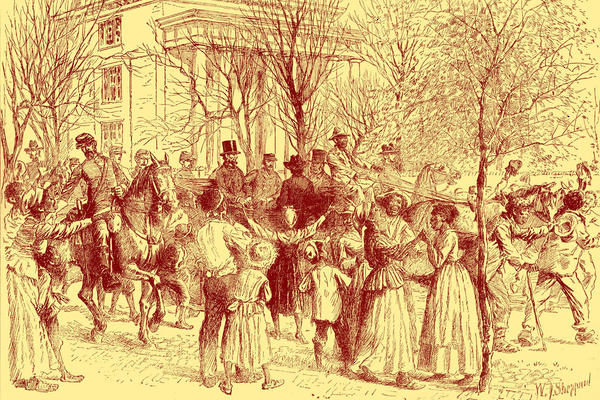On Friday, the U.S. Department of Education released sweeping new rules for Title IX, the 1972 federal law that makes it illegal for any federally-funded academic program or activity to discriminate based on a person’s sex. The changes could undo efforts by many Texas colleges and universities to give greater weight to complainants of harassment.
The new rules would weaken Obama-era guidelines, which called for more aggressive enforcement of Title IX. In their place would be new protections for students accused of sexual misconduct, and reduced liability for schools investigating misconduct complaints. All this is happening amid what has been described as an unprecedented era of Title IX enforcement.
Paula Lavigne, who reports for ESPN’s enterprise unit, and is co-author of the book, “Violated: Exposing Rape at Baylor University Amid College Football’s Sexual Assault Crisis,” says the proposed regulations emphasize giving more rights to the accused.
“The way that the Trump administration and Education Secretary Betsy DeVos proposes this is that the standard to prove that someone is responsible for a violation is higher. There is also [a] provision in there to allow for cross-examination of the alleged victim. And there are some restrictions, too, that I think benefit the university more so than anyone,” Lavigne says.
She says the changes would reduce the types of misconduct, or Title IX violation cases that universities would be responsible for. Incidents would have to have taken place either on campus or at a university-sponsored event off campus to fall under a university’s purview. For example, a sexual assault that occurred at an off-campus apartment would not fall under a university’s Title IX responsibility, under the new rules.
“That’s one of the big concerns, and a lot of the cases that we’ve seen come forward, especially ones that have, you know, garnered a lot of media attention, are cases that would fit that profile,” Lavigne says.
Also, students can cross-examine each other under the new rules, which is a change from Obama-era guidelines that discouraged cross-examination of accusers because it could retraumatize an assault survivor. Lavigne says this change is troubling because sexual crimes are already underreported, and cross-examination could reinforce the stigma survivors often face.
“Statistics show that women, especially, who experience sexual assault, domestic violence, are not reporting it,” Lavigne says. “The fear is that you’re really going to discourage even more of them from coming forward because if they feel like they’re gonna go into this process and it’s going to be like a courtroom setting, they’re going to be less likely to come forward.”
In Texas, one of the most recent and significant Title IX cases was at Baylor University where investigators found that the university didn’t comply with Title IX when dealing with student allegations of sexual assault against Baylor football players. Lavigne says if these new Title IX rules had been in effect during that scandal, it would have made it harder for accusers to report the incidents.
“One of the big things that come out of these new proposals is the fact that … it has to be reported to a ‘responsible employee,'” Lavigne says. “That means that professors, coaches, other people at the university aren’t necessarily mandatory reporters anymore.”
She says during the Baylor scandal, accusers reported the assaults to professors, coaches and academic advisers. But under the new guidelines, those authorities may not be required to report the allegations to the university.
“And now, schools would kind of be off the hook,” Lavigne says.
Written by Caroline Covington.
















